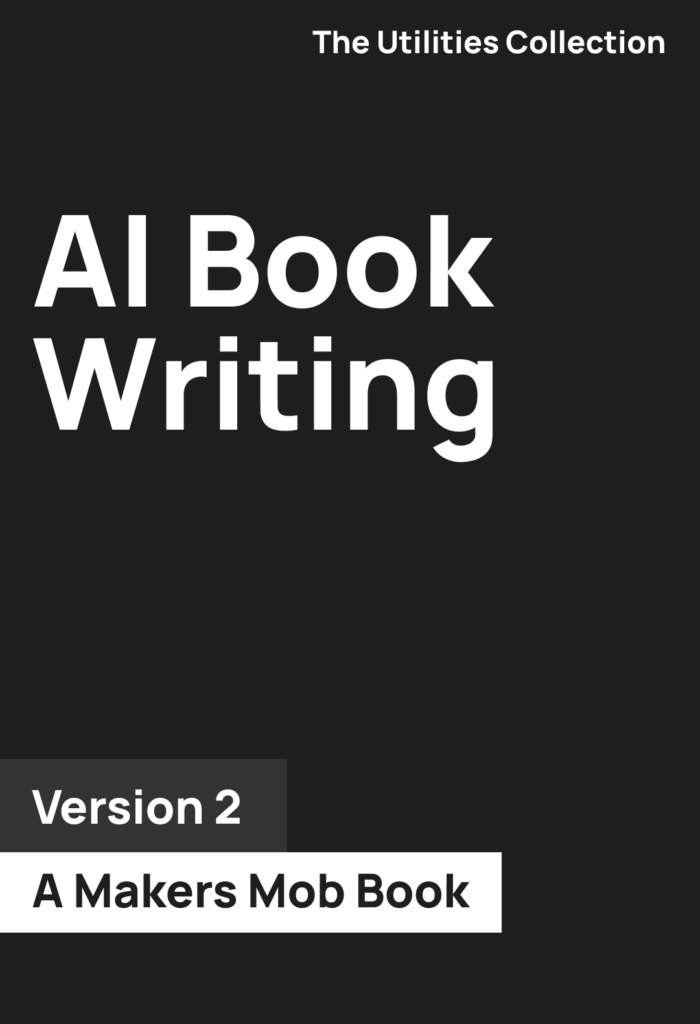In today’s digital age, where the written word can be easily shared and disseminated, it is crucial for solopreneurs and creators to understand the importance of copyrighting their eBooks.
Copyrighting serves as a shield, protecting the hard work and creativity that goes into crafting a unique piece of literary art. It not only safeguards your intellectual property but also ensures that you have the exclusive rights to reproduce, distribute, and display your work.
Solopreneurs and creators pour their heart and soul into their eBooks, spending countless hours researching, writing, and editing to create a valuable and engaging piece of content. Therefore, it becomes imperative to safeguard their work from unauthorized use or duplication. By copyrighting your eBook, you establish your ownership and retain control over how your work is used, preventing others from profiting off your efforts without your consent.
Importance of Copyrighting an eBook for Solopreneurs and Creators
Moreover, copyrighting an eBook provides legal protection against plagiarism and copyright infringement. It acts as a deterrent, dissuading others from unlawfully copying or distributing your work. In the event that someone does infringe upon your rights, having a copyright in place strengthens your position to pursue legal action and seek appropriate remedies.
Not only does copyrighting protect your work, but it also offers financial benefits. By securing the exclusive rights to your eBook, you can monetize your creation through various avenues such as selling eBooks online, self-publishing, or exploring eBook affiliate marketing. These avenues provide solopreneurs and creators with opportunities to generate income and establish themselves as authorities in their respective fields.
Furthermore, having a copyright for your eBook allows you to exercise control over its distribution and licensing. You can choose to publish your eBook on eBook publishing platforms or even explore traditional publishing options. With a copyright in place, you have the power to negotiate favorable terms and conditions with publishers and protect your rights as an author.
Ultimately, copyrighting your eBook empowers you as a solopreneur or creator. It grants you the legal authority to protect your work, capitalize on its value, and dictate how it is used. In an era where information is readily available and digital content is easily replicated, safeguarding your intellectual property through copyright is not just a choice, but a necessity.
In the following sections, we will delve deeper into the nuances of copyright law, explore the steps to copyright your eBook, discuss copyright protection tips, and shed light on how to avoid copyright infringement. We will also address the relevance of copyright in the context of self-publishing platforms. So, stay tuned to gain a comprehensive understanding of how you can safeguard your intellectual property and navigate the world of eBooks with confidence.

Understanding Copyright Laws
As a solopreneur or creator, it is crucial to have a solid understanding of copyright laws to protect your intellectual property. Copyright is a legal concept that grants exclusive rights to the original creators of various forms of artistic and creative works. These works can include literary, musical, dramatic, and artistic creations, among others.
Copyright essentially gives the creator the right to control how their work is reproduced, distributed, displayed, and performed. It allows them to benefit financially from their creations and prevents others from using their work without permission. In essence, copyright ensures that creators have the ability to protect and profit from their hard work.
One important aspect of copyright is ownership and duration. In the United States, copyright protection is automatic upon the creation of a work. The copyright is initially owned by the creator of the work, whether it’s an individual or a group. In the case of works created as part of employment, the employer may own the copyright.
The duration of copyright protection varies depending on several factors, including the type of work and the year it was created. For works created by an individual, copyright protection generally lasts for the creator’s lifetime plus an additional 70 years. For works created by a group of authors, copyright protection generally lasts for 70 years after the death of the last surviving author.
Fair use and public domain are important concepts to understand when it comes to copyright. Fair use allows limited use of copyrighted material without permission from the copyright holder. This includes purposes such as criticism, comment, news reporting, teaching, scholarship, and research. However, the determination of fair use can be subjective and depends on factors such as the purpose and character of the use, the nature of the copyrighted work, the amount used, and the effect on the market for the original work.
On the other hand, public domain refers to works that are no longer protected by copyright or never were. These works can be freely used by anyone without permission or payment. Public domain works include those whose copyright has expired, those created by the government, and those explicitly dedicated to the public domain by the creator.
Understanding these key aspects of copyright laws is essential for solopreneurs and creators to navigate the world of intellectual property. By knowing your rights and the limitations of fair use, you can ensure that your own work is protected and that you are respecting the rights of others. In the next section, we will dive into the steps you can take to copyright your eBook and safeguard your creative endeavors.
Steps to Copyright Your eBook
Once you’ve poured your heart and soul into creating an eBook, it’s crucial to protect your intellectual property by copyrighting it. This section will guide you through the essential steps to ensure your eBook receives the legal protection it deserves.
Step 1: Originality and Creativity
Copyright law grants protection to original works of authorship. To copyright your eBook, it must possess a significant level of creativity and be an original creation. This means that you should avoid copying existing content or infringing upon the intellectual property rights of others. Be sure to infuse your work with a unique perspective, fresh ideas, and innovative insights that set it apart from the rest.
Step 2: Fix Your Work in a Tangible Form
To establish your copyright, it’s essential to fix your eBook in a tangible form. This means transforming your ideas into a concrete expression that can be perceived, reproduced, or communicated. Whether you choose to write your eBook using word processing software or create it using ebook creation software, make sure to save your work in a format that can be easily accessed and reproduced.
Step 3: Copyright Registration Process
While copyright protection is automatic upon creating your eBook, registering your copyright with the appropriate authorities provides additional benefits. In the United States, you can register your copyright with the U.S. Copyright Office. Registration offers legal evidence of ownership and provides the opportunity to seek statutory damages and attorney’s fees in case of infringement. To begin the registration process, visit the U.S. Copyright Office website and follow their guidelines for submitting your application.
Step 4: Copyright Notice
Including a copyright notice in your eBook is a simple yet effective way to communicate your ownership rights and deter potential infringers. A copyright notice typically consists of the copyright symbol (©), the year of first publication, and the copyright owner’s name. Placing this notice on the title page or the copyright page of your eBook serves as a clear indication to readers and potential users that your work is protected by copyright.
By following these steps, you can secure your rights as the creator of your eBook and safeguard against unauthorized use or reproduction. Remember, a well-protected eBook allows you to confidently share your work with the world, knowing that your intellectual property is safeguarded.
Next, we will explore some valuable tips for protecting your copyrighted eBook, including watermarking, digital rights management, and monitoring for copyright infringement.
Continue reading: Copyright Protection Tips
Copyright Protection Tips
Protecting your intellectual property is crucial when it comes to eBook creation. As a solopreneur or creator, you’ve put in countless hours of hard work and creativity into your masterpiece. Now, it’s time to ensure that your eBook is safeguarded from unauthorized use and distribution. In this section, we will explore some effective copyright protection tips that can help you preserve the integrity of your work.
Watermarking your eBook
One of the simplest and most effective ways to protect your eBook is by watermarking it. Watermarking involves adding a visible or invisible mark to your eBook’s pages, such as your name, logo, or copyright symbol. This serves as a reminder to readers that the content is protected and should not be shared without permission. Additionally, it acts as a deterrent to potential infringers who may think twice before unlawfully distributing your work.
Digital rights management (DRM)
Digital rights management (DRM) is a set of technologies and strategies used to control the access, usage, and distribution of digital content, including eBooks. Implementing DRM measures can help you protect your eBook from unauthorized copying, printing, and sharing. By encrypting your eBook files and using DRM solutions, you can prevent piracy and maintain control over how your content is consumed.
Monitoring and enforcing your copyright
Even with watermarking and DRM in place, it’s essential to actively monitor and enforce your copyright. This involves keeping an eye out for any unauthorized use or distribution of your eBook. Monitoring can be done by conducting periodic searches online to identify any instances of infringement. If you discover unauthorized copies or distribution, you can take appropriate action, such as sending cease and desist letters or pursuing legal action if necessary.
Moreover, it’s important to educate yourself about the copyright laws in your jurisdiction and understand the steps you can take to protect your rights. Familiarize yourself with the duration of copyright ownership, fair use exceptions, and the public domain. By staying informed and vigilant, you can safeguard your eBook and prevent others from profiting from your hard work.
Remember, protecting your eBook’s copyright is not only about legalities, but it’s also about maintaining the value of your creation. By taking these proactive measures, you can ensure that your eBook remains an exclusive and sought-after piece of content.
In the next section, we will discuss how to avoid copyright infringement and uphold ethical standards in your eBook creation journey.
Continue reading: Avoiding Copyright Infringement
Avoiding Copyright Infringement
When it comes to creating and publishing an eBook, avoiding copyright infringement is of utmost importance. As a solopreneur or creator, it is crucial to conduct thorough research, properly attribute sources, and seek permission for copyrighted material to ensure that your work is legally protected and respects the rights of others.
Conducting thorough research is an essential step in avoiding copyright infringement. Before diving into your eBook creation process, take the time to explore the existing literature and content on your chosen topic. This not only helps you gain a better understanding of the subject matter but also allows you to identify any potential copyright issues. By familiarizing yourself with the work of others, you can ensure that your eBook is original and doesn’t infringe upon someone else’s intellectual property.
Properly attributing sources is another crucial aspect of avoiding copyright infringement. Whenever you draw inspiration from or directly quote another author’s work, it is essential to give credit where credit is due. By properly citing your sources, you not only acknowledge the original creators but also demonstrate your commitment to ethical writing practices. This can be done by including in-text citations, footnotes, or a bibliography at the end of your eBook.
In cases where you want to incorporate copyrighted material such as images, illustrations, or excerpts from other works, seeking permission from the copyright owner is paramount. This can involve contacting the copyright owner directly, obtaining a license to use the material, or ensuring that the material falls under fair use guidelines. Remember, obtaining permission protects both your eBook and the rights of the original creators.
By following these steps and adhering to copyright laws, you can navigate the complex world of intellectual property while safeguarding your own creative work. Remember, respecting the rights of others not only keeps you on the right side of the law but also fosters a culture of integrity and collaboration within the creative community.
To learn more about creating and copyrighting eBooks, check out our comprehensive guide on how to create an ebook. And for those interested in selling their eBooks online, be sure to explore our article on self-publishing an ebook and discover the best ebook publishing platforms available.
Copyright and Self-Publishing Platforms
When it comes to self-publishing your eBook, it’s essential to understand the terms and conditions set by the various self-publishing platforms available. While these platforms offer a convenient way to share your work with the world, it’s crucial to protect your rights as a creator.
Understanding the terms and conditions of self-publishing platforms is the first step in ensuring that you maintain control over your eBook. Each platform has its own set of rules and regulations that govern how your work can be used and distributed. By familiarizing yourself with these terms, you can make informed decisions about where to publish your eBook and how it will be protected.
It’s important to note that while self-publishing platforms provide a platform for authors to showcase their work, they are not responsible for protecting your copyright. As the creator, it’s your responsibility to take the necessary steps to safeguard your intellectual property.
To protect your rights on self-publishing platforms, there are a few key considerations to keep in mind:
-
Choose the right platform: Before uploading your eBook, carefully review the terms and conditions of different self-publishing platforms. Look for platforms that offer robust copyright protection measures and allow you to retain ownership of your work.
-
Read the fine print: Take the time to thoroughly read and understand the terms and conditions of the self-publishing platform you choose. Pay close attention to clauses related to copyright, licensing, and distribution rights. If you have any questions or concerns, reach out to the platform’s support team for clarification.
-
Utilize copyright protection tools: Some self-publishing platforms offer built-in copyright protection features, such as DRM (Digital Rights Management). DRM can help prevent unauthorized copying and distribution of your eBook. Consider using these tools to add an extra layer of protection to your work.
-
Consider publishing on multiple platforms: While it may be tempting to exclusively publish your eBook on a single platform, diversifying your distribution can help protect your rights. By publishing on multiple platforms, you reduce the risk of relying solely on one platform’s terms and conditions.
Remember, copyright protection is a crucial aspect of self-publishing. By understanding the terms and conditions of self-publishing platforms and taking proactive measures to protect your rights, you can ensure that your eBook remains secure and under your control.
For more information on how to create an eBook, check out our comprehensive guide on how to create an eBook.
Conclusion
In conclusion, copyrighting your eBook is a crucial step for solopreneurs and creators who want to protect their intellectual property and ensure their hard work is not plagiarized or used without permission. By understanding the fundamentals of copyright laws and following the necessary steps to register your eBook, you can establish your ownership and rights over your creative work.
Throughout this guide, we have explored the various aspects of copyright, including its definition, ownership, duration, and the concept of fair use and public domain. We have also delved into the essential steps you need to take to copyright your eBook, such as ensuring originality and creativity, fixing your work in a tangible form, and completing the registration process. Additionally, we have discussed the importance of including a copyright notice in your eBook to provide proper notification to potential infringers.
To further protect your eBook, we have provided tips on watermarking your eBook and utilizing digital rights management (DRM) techniques. These measures can act as deterrents to unauthorized copying and distribution of your work. Additionally, we have emphasized the significance of monitoring and enforcing your copyright, as it is essential to actively safeguard your rights and take action against any infringements.
Furthermore, we have highlighted the importance of conducting thorough research, properly attributing sources, and seeking permission when including copyrighted material in your eBook. By adhering to these practices, you can avoid unintentional copyright infringement and maintain ethical standards in your creative endeavors.
It is also crucial to understand the terms and conditions of self-publishing platforms to protect your rights as an author. By familiarizing yourself with the platform’s policies and guidelines, you can ensure that you retain control over your eBook and are not subjected to any unfair practices.
In conclusion, copyrighting your eBook is a fundamental step in establishing your ownership, protecting your creative work, and preserving your rights as a solopreneur or creator. By following the guidelines outlined in this guide, you can navigate the complex world of copyright law with confidence and safeguard the fruits of your labor.
If you want to learn more about the process of how to create an eBook or explore strategies for selling eBooks online, be sure to check out our other comprehensive guides on these topics. Remember, knowledge is power, and equipping yourself with the necessary information and tools will elevate your eBook creation journey to new heights. Happy writing and copyrighting!
*[DRM]: Digital Rights Management

